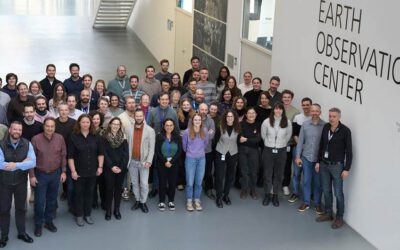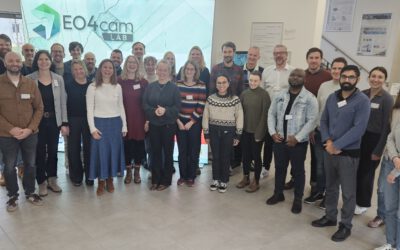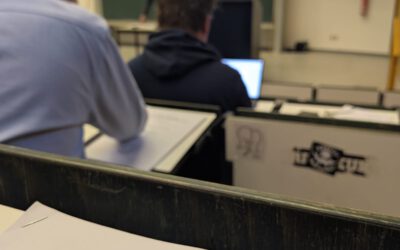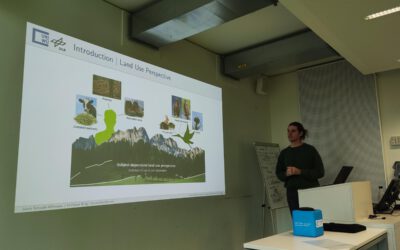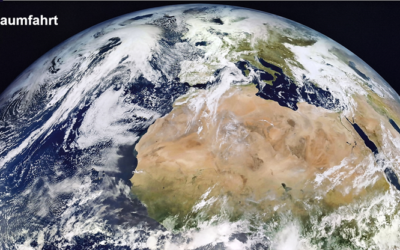The Human Planet Forum 2025, “People and Planet: Shared Understanding for Informed Action” explored how geospatial data support safer, more inclusive, and sustainable decision-making. The event is part of the GEO Human Planet Initiative with the goal to work towards understanding and mapping human presence on earth: https://joint-research-centre.ec.europa.eu/events/human-planet-forum-2025-2025-11-19_en
The forum was held at the European Commission’s Joint Research Centre site in Ispra, Italy from the 19th to the 21st of November. The forum brought together scientists, policymakers, UN bodies, civil society and the private sector to co-create actionable knowledge in areas such as disaster risk reduction, global sustainability and societal resilience.
The Earth Observation Center (EOC) of the German Aerospace Center (DLR) and our Earth Observation Research Cluster (EORC) contributed with various presentations. Our professor Hannes Taubenböck was invited to present our research works in the ‘urban’ session. He gave a talk titled “Global urbanization: Past dynamics, land use efficiency, patterns, past and future carrying capacities, and outlook considering IPCC climate scenarios“. The presentation was based on our collaborative works with Michael Wurm, Richard Lemoine Rodríguez, Karen C. Seto (from Yale University), Thomas Esch, Johannes Mast, Henri Debray and Christian Geiß.
In the special session on poverty and informality two talks on our research were given. One talk was given by Anica Huck from our collaboration partner European Space Imaging (EUSI) titled “Overcoming Spatial and Population Uncertainties: VHR Satellite-Data for Global Slum Mapping and Modeling“. Another talk was given by Hannes Taubenböck titled “Capturing the Variability of Slums: Remote Sensing and AI Approaches for Global Monitoring“. These presentations relied on our research done with Thomas Stark, John Friesen, Nicolas J. Kraff, Anica Huck (from EUSI), Pascal Schichor (also from EUSI), Jens Danzeglocke and Michael Wurm. Beyond this, Anica and Hannes were part of a panel discussion on the way forward in terms of EO and mapping poverty and informality.
For more information on these research works, please see here:
- https://remote-sensing.org/studies-on-global-urbanization/
- https://remote-sensing.org/dlr-research-report-titled-urban-science-with-a-view-from-space-published/
- https://remote-sensing.org/a-decade-of-research-on-poverty-slums-and-informal-settlements-with-remote-sensing/






